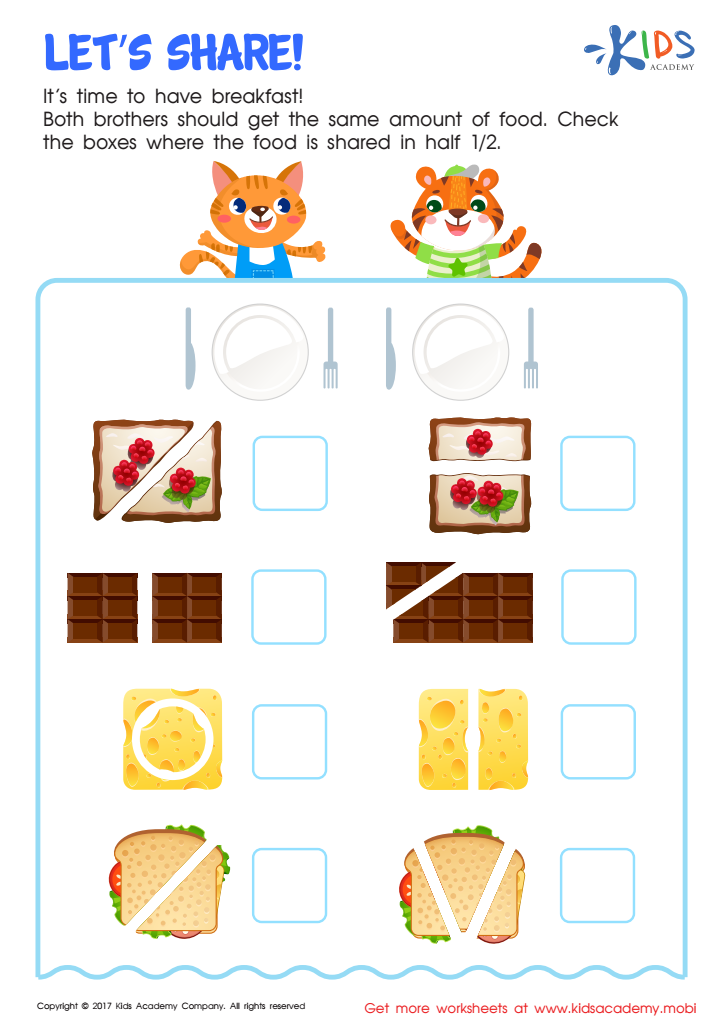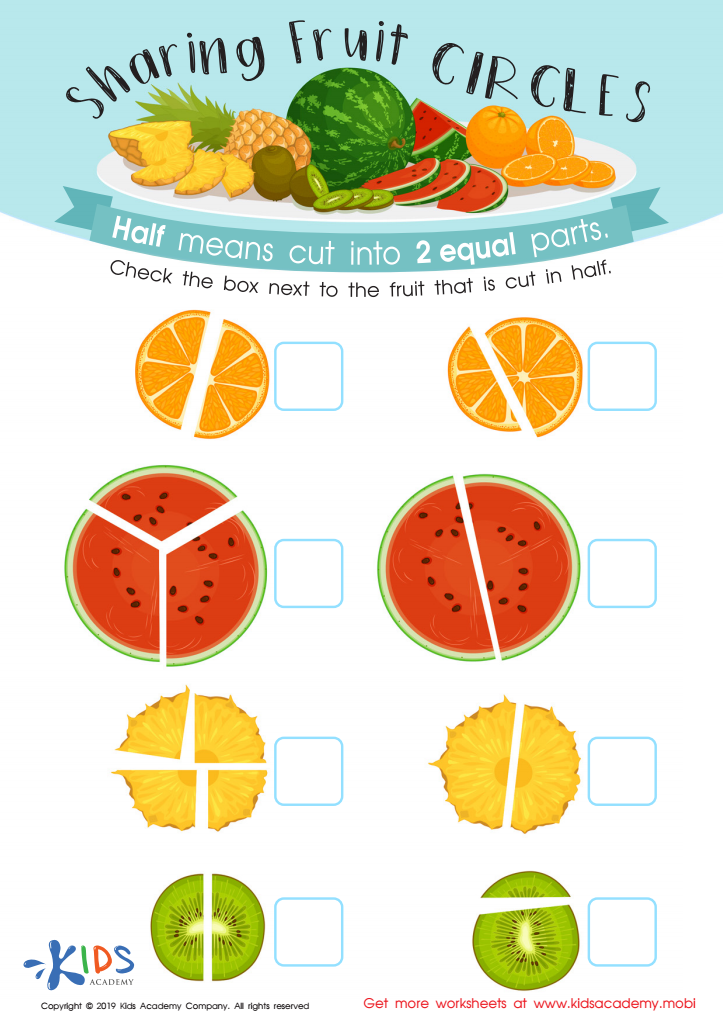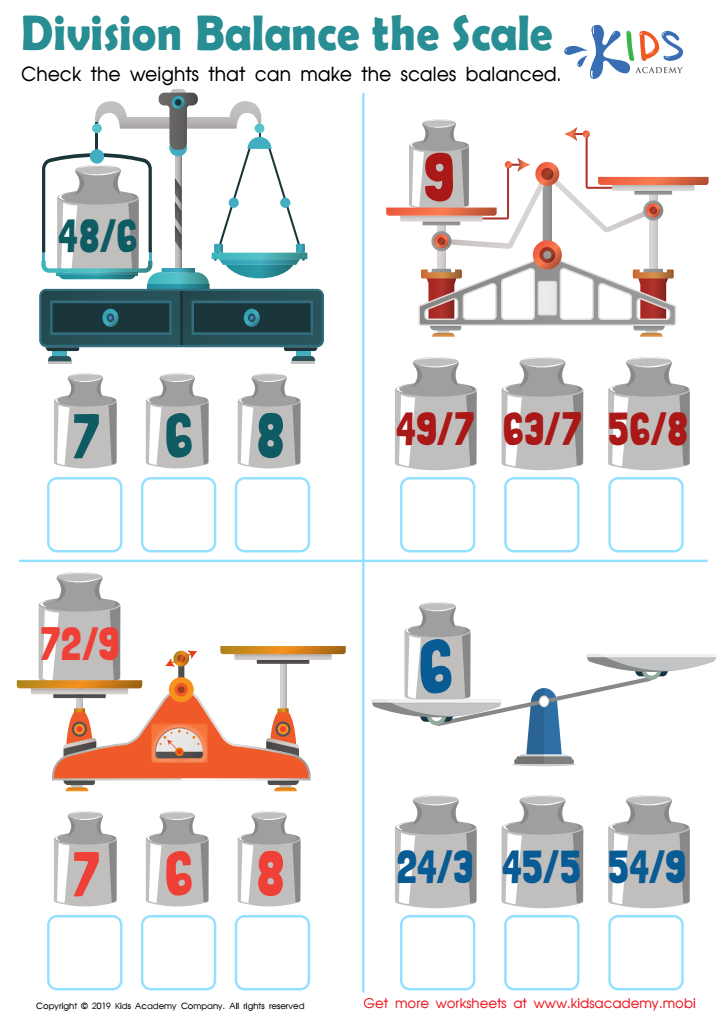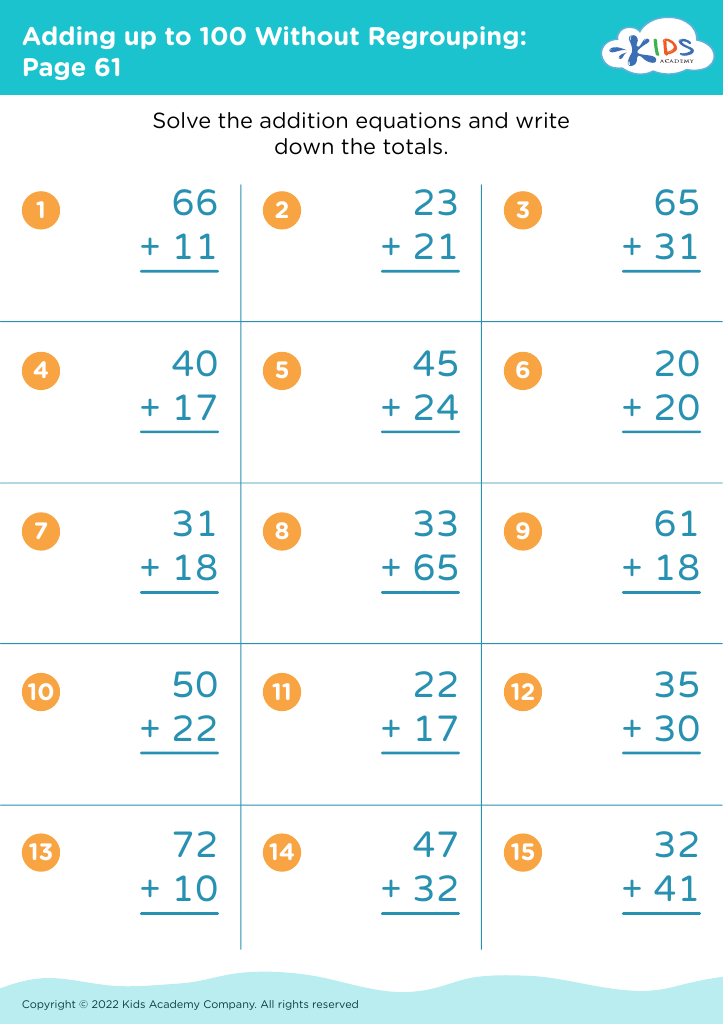Understanding division Math Worksheets for Ages 3-9
8 filtered results
-
From - To
Unlock the world of division for your child with our engaging "Understanding Division Math Worksheets" tailored for ages 3-9. These worksheets introduce fundamental division concepts through fun and interactive activities designed to make learning enjoyable. Featuring a variety of exercises, including visual aids and hands-on practice, they encourage critical thinking and problem-solving skills. Perfect for at-home learning or classroom use, our resources provide gradual challenges to build confidence and fluency in division. Equip your child with the tools they need to master division and develop a lifelong love for math. Explore our worksheets and foster your child’s mathematical journey today!


Let's Share Worksheet


Sharing Fruit Circles Worksheet


Division Balance the Scale Worksheet
Understanding division is essential for children ages 3-9, as it lays the foundation for critical thinking and problem-solving skills that will be vital throughout their education. At this stage, children are developing their numeracy skills, and grasping the concept of division helps them understand how numbers relate to each other. It is a fundamental operation that connects to daily life, such as sharing equally among friends or dividing items, fostering collaboration and social skills.
By introducing division concepts early, parents and teachers can help children recognize patterns and relationships between numbers, building their confidence in math. Engaging with division through playful activities not only makes learning fun but also increases their ability to think abstractly. This skill is crucial as they move towards more complex math topics in later grades.
Additionally, a solid understanding of division enhances a child’s ability to tackle word problems and apply math to real-world situations, which aligns with educational standards. When parents and teachers prioritize understanding division, they empower children to develop a positive attitude towards math, reducing anxiety and promoting persistence as they face challenges in their learning journey. In essence, nurturing division skills early enriches children's academic growth and prepares them for future success.
 Assign to My Students
Assign to My Students
























